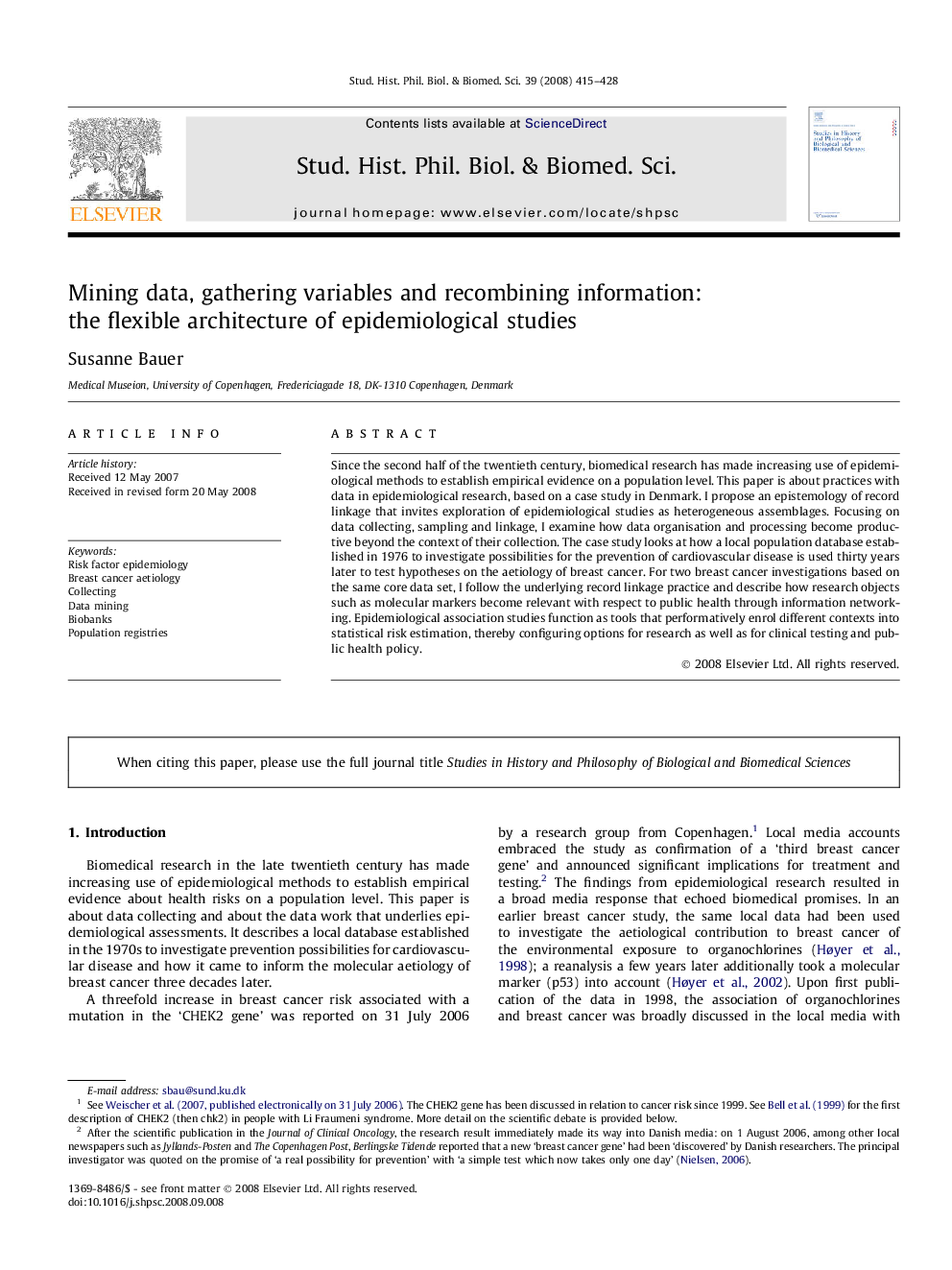| Article ID | Journal | Published Year | Pages | File Type |
|---|---|---|---|---|
| 1162072 | Studies in History and Philosophy of Science Part C: Studies in History and Philosophy of Biological and Biomedical Sciences | 2008 | 14 Pages |
Since the second half of the twentieth century, biomedical research has made increasing use of epidemiological methods to establish empirical evidence on a population level. This paper is about practices with data in epidemiological research, based on a case study in Denmark. I propose an epistemology of record linkage that invites exploration of epidemiological studies as heterogeneous assemblages. Focusing on data collecting, sampling and linkage, I examine how data organisation and processing become productive beyond the context of their collection. The case study looks at how a local population database established in 1976 to investigate possibilities for the prevention of cardiovascular disease is used thirty years later to test hypotheses on the aetiology of breast cancer. For two breast cancer investigations based on the same core data set, I follow the underlying record linkage practice and describe how research objects such as molecular markers become relevant with respect to public health through information networking. Epidemiological association studies function as tools that performatively enrol different contexts into statistical risk estimation, thereby configuring options for research as well as for clinical testing and public health policy.
